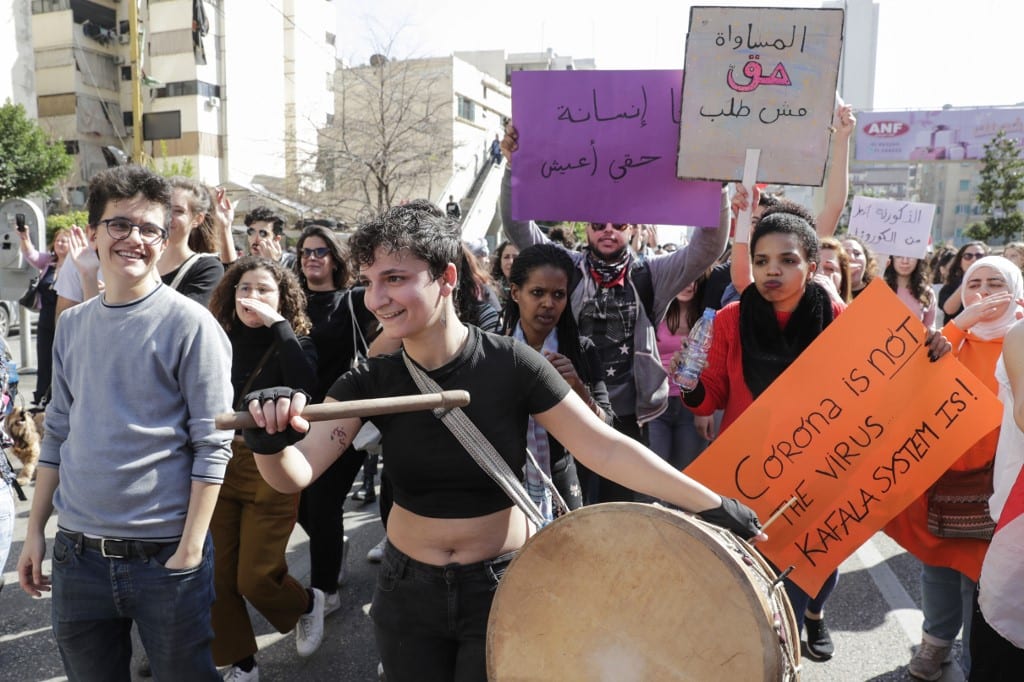On March 10th, almost three weeks after the outbreak of the Corona virus in Lebanon, and at the height of the panic and confusion caused by the rapid spread of the disease and the nonchalance of the current government in addressing what proved to be a life threatening situation, many of us were surprised with the signing of no less than 8 presidential decrees (numbered 6173, 6174, 6175, 6176, 6177, 6178, 6179 and 6180) stipulating the reinstatement of the Lebanese nationality to descendants of Lebanese “fathers” and “grandfathers”.
These decrees were approved based on the proviso of the infamous law number 41 issued on November 24th 2015 with the support (and insistence) of the former Minister of Foreign Affairs and son-in-law of the current President, Mr. Gebran Bassil and which granted immigrants descendants of Lebanese fathers or grandfathers the right to reclaim their Lebanese nationality.
A reminder that at the beginning of his mandate, on May 11th 2018, President Aoun had used his extraordinary presidential prerogative to grant nationality on his own discretion to hundreds of individual via a special presidential decree.
This is probably one of the most difficult periods to effect change or even any progress in women’s rights to confer nationality. This is mainly due to the fact that the regime’s honest position on this matter has always been negative.
With the signature of the president, his then Prime Minister Saad Hariri, and Minister of Interior, Nouhad al Mashnouk, some 411 individuals became Lebanese whilst thousands of Lebanese married to non-nationals are still denied their fundamental right to confer nationality to their spouses and children, a right that is bestowed to Lebanese men married to non-national women. To be noted that no convincing justification was given as to the reasons why the President chose these particular individuals to grant them a Lebanese nationality especially since many of them were, according to the Lebanese media, known acolytes of the Syrian regime and/or shady business people (circa 103 persons holding a Syrian nationality). Despite the media hype and public recrimination that accompanied this action, albeit short lived, the President continued taking on further actions that undermine Lebanese women’s rights. Indeed, and on June 27th 2019, the President refused to sign a law approved by parliament (law number 5271) and which granted children and spouses of Lebanese women their fundamental right to work (even though this law did not include professions which required subscription to professional syndicates thus only offering partial solutions to the issue of denial of right to work). The presidency was quick to justify this act by some obscure legal argument which, again, failed to be convincing.
This abject denial of the basic right to work for the non-national spouses and children and Lebanese women was happening at a time when the National Commission for Lebanese Women, currently presided by the daughter of the President, Ms. Claudine Aoun Roukoz, had submitted a law petition (period extending between May and July 2019), which, according to Ms. Aoun’s statements to the media, seeks to bring some justice in women’s right to confer nationality.
Claudine Aoun’s/NCLW’s law benefited from extensive media coverage accompanied by high level meetings with representative of foreign delegations and international organisations in Lebanon as well as an official meeting with her brother-in-law, then the Minister of Foreign Affairs (El Nashra, 9 July 2019). The said law wished to be seen as the top of the line of what the government could do to ensure women’s rights while at the same time managing the so-called demographic concerns that the political system is so keen on. However, that particular law, which the daughter of the President continues to market at the time of writing this article, brought in additional layers of discrimination (e.g. children within the same family are discriminated on the basis of age), and exclusion (spouses are explicitly excluded from the law) and left a lot of discretionary power in the hands of the government, a matter that lacks objectivity and clear and just parameters for decision making, to say the least.

So, what has the present regime done to address the injustice in Lebanese women’s rights to confer nationality? Our inventory indicates the following and in chronological order:
● Few months after coming to power the President issues a naturalization decree benefiting 411 individuals (half of whom were Palestinians and Syrians at a time when the former Minister of Foreign Affairs stated that he is adamantly against granting the Lebanese nationality to Syrian and Palestinian nationals)
● The next year, the President rejects a law allowing spouses and children of Lebanese women to work
● And just a few days ago, as the country is grappling with the Covid-19 epidemic and amidst the governmental deadly debacle, the President signs 8 decrees to reinstate Lebanese nationality to immigrants descending from Lebanese fathers
But, let us thank our lucky stars that the daughter of the President has a law petition up her sleeve. A law that is least likely to go anywhere, even with all its flaws and inconsistencies, but which the regime will use to repeat its favorite rhetoric: “we tried but they did not let us”.
For those of us who have been fiercely advocating for equal citizenship rights for women in Lebanon, and the full and unfettered implementation of international women’s rights conventions that Lebanon presumably adhered to, this is probably one of the most difficult periods to effect change or even any progress in women’s rights to confer nationality. This is mainly due to the fact that the regime’s honest position on this matter has always been negative.
Indeed, the ruling party, the Free Patriotic Movement founded by the President and now presided by his son-in-law, has made no secret of its total opposition to women’s rights to nationality. The FPM has invoked several arguments which are totally in line with its racist stance vis-à-vis Palestinians, Syrian, and other “nationals of neighboring countries” as referred to by the President’s son-in-law as well as the perennial argument over “demographic balance”.
However, to single out the FPM as the only political party against the reform of the current nationality law would be unfair. In fact, and based on personal encounters and communications, the FPM’s nemesis, namely the Lebanese Forces have no interest in any such reform which would, in their view and according to their own analysis, increase the numbers of Muslims in the country. Also, and after the influx of refugees from neighboring Syrian, the Hizbollah party, which had in the past shown some mild sympathy vis-à-vis the social and economic plight that women married to non-nationals faced, changed its stance as, using the same demographic parameters as its FPM allies, with the realization that the delicate Sunni-Shia balance may be at risk from the such a reform
In the final analysis, the regime alongside its allies and its opposition are unashamedly patriarchal simply by failing to recognize the rights of women or even acknowledge women as full fledged citizens and by persisting in denying rights and reproducing gender inequality in both their practice and in the letter of the law. But perhaps their other sin, one of many, is in undermining the power of women as active and mature citizens who will probably not stop demanding their rights as was clearly obvious in the revolution of October 17th. Amongst their many calls, citizens on the street clearly identified equal rights to nationality as a key demand and a condition sine qua none for reform.
There are many regime apologists out there. We are constantly being hammered by advice to take the intentions of the power that be at face value, give them a chance, they say…. Yes, a pathetic nationality law petition has been thrown out there with much publicity to the extent that it has been convincing for some… Yet, the lived realities of women, their experiences of injustice, exclusion and discrimination have not changed but rather worsened. Women in Lebanon have not only been undermined, they have also been further humiliated by presidential decrees and wheels and deals that have prioritized individuals with no rights over theirs…
The current preaches reform and institutionalizes corruption, preaches justice and undermines individual freedoms and liberties, it uses international and local platforms to talk about its commitment to women’s rights and equality and refuses to engage in any reform which would take us a step closer to equality and inclusive citizenship. Regardless of its public narrative, the regime is consistent in its actions.
Institutionalising gender equality and inclusive citizenship is at the heart of the reforms demanded by the revolution. This is a full and inter-related package including equality in the right to confer nationality, egalitarian civil family laws, curbing the control of religious institutions over the lives of women, criminalizing all forms of violence, oppression and discriminations against women and people of all sexual orientations and gender identities.
The current regime has no intention to do any of that.
df






